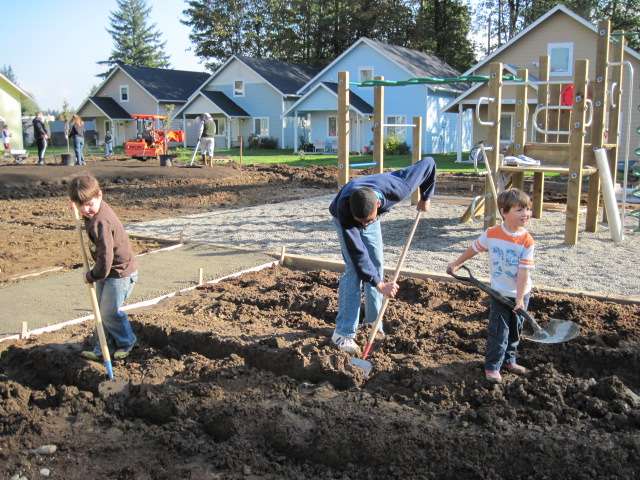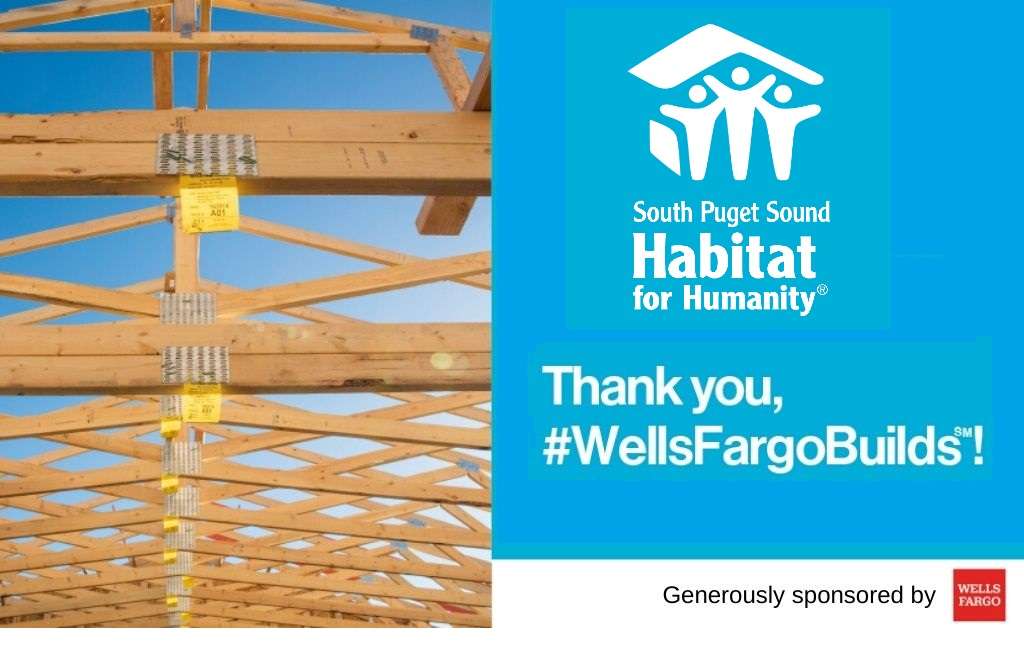Healthy Homes Build Healthy Communities
South Puget Sound Habitat for Humanity has been a presence in Thurston County since 1989 and in that time, the organization has partnered with volunteers, donors, businesses and homeowners to build 63 homes for families with limited incomes. Over the next few years, they are aiming to double their capacity, building an additional 26 homes by 2020.

There are currently seven completed homes at Habitat’s Deyoe Vista development, with another eight under construction and 18 more planned. According to marketing and development manager, Tanya Mote, it can take between eight to ten months to finish a home. Build times can also vary because each family is required to put in 200 hours of sweat equity alongside staff and volunteers. “Our families are typically working full-time and have kids and putting in 200 hours while maintaining a normal life can be hard to do, so we try to give them a reasonable amount of time,” says Dutton.
Families must meet three criteria in order to qualify for a Habitat home. They need to live or work in Thurston County, make between 30-80% of the area median income (for a family of four, this is currently between $24,600-$61,050 per year) and be willing to put in the sweat equity. Beyond that, the application process is very similar to applying for a mortgage loan at a regular bank, though Habitat provides families with additional financial education courses and supports them in pulling together the necessary documents to qualify.

With such flexible requirements, the need is much greater than Habitat can currently meet. Habitat’s Homeownership Selection Team typically consults with about 500 individuals and families each year and reviews applications during specific open periods. During their last cycle, they received 33 applications and ultimately selected three families.
Dutton says, “Thurston County has a real need for affordable housing and affordable owner-occupied housing even more so. Fifty-two percent of our households are single moms with kids under age five. Typically our families are only making a couple dollars over minimum wage and they’re the perfect applicants for our program because they benefit most from stability homeownership can offer and can also afford one of our mortgages.”
That affordability is due to the volunteer labor, business partnerships, and community donations that make it possible for Habitat to discount the purchase price of their homes. A three bedroom, two bathroom, 1250 square foot home, complete with a neighborhood playground and community garden, costs the homeowners just $125,000. “On average, our families are paying about $650 per month for a zero-interest mortgage,” says Dutton. Most families end up saving over $500/month in housing costs, allowing them to put on average $10,000 year in rent savings and net equity.

“Our entire goal is to help these families succeed,” says Dutton. “If they get behind or have financial difficulty, we help them navigate through that. Medical emergencies and other things do come up, but by amending their mortgage schedule we can help them through that.”
The Cruz family is one of Habitat’s recent success stories. The family of five was paying $1,300 per month for a small apartment, while Mr. Cruz worked full time and Mrs. Cruz worked part-time at two minimum wage jobs. After being selected to partner with Habitat, Mrs. Cruz had both the confidence and the additional financial savings necessary to go back to school to attain her Pharmacy Technician certification. Dutton says, “We’re now seeing her career start to take off; she’s an awesome role model for her daughters in showing that goals are achievable.”

Ultimately, Habitat builds homes because of the impact that safe, affordable housing has on future generations. According to Dutton, homeownership leads to increased graduation rates, improvements in children’s health and decreased behavioral problems due to unstable living situations. Family financial security increases and reliance on other forms of assistance decreases. “Families that can self-determine their own future also report a higher level of happiness,” she says.
Reversing the negative health impacts that often come with living in sub-standard housing is a key priority for Habitat. With old carpet, old windows and lots of moisture, many cheap-to-rent homes are prone to mold, which is particularly harmful to young children’s respiratory systems. Kids miss school due to illness and make frequent doctor visits. Habitat homes are cleaner. “Kids are able to go to school more regularly instead of being home ill and they’re no longer going to the doctor every week. [A healthy house] is almost like a vaccine for families,” Dutton says.
Safety is another key aspect of owning a Habitat home. The Deyoe Vista development is built as a “Cottage Community,” with a fence around three-quarters of the development that limits access for non-residents, as well as a curved road designed to keep speeds down. Dutton says, “When we design these neighborhoods, safety is paramount.”

As a non-profit organization, a portion of Habitat’s income comes from the mortgages that participating families pay. “It’s a pretty magical process, with neighbors building community with neighbors. Our homeowners’ mortgage payments go into a revolving fund that is only used to build more affordable housing. We are then able to use those funds to leverage government grants,” says Dutton.
Though the majority of Habitat’s revenue comes from sales at their two Habitat Storelocations in West Olympia and Yelm, they also rely on the community for donations. Whether or not they’re successful in reaching their goal of 81 homes by 2020 will largely depend on community support. Through their upcoming It’s All for the Kids campaign, they are increasing both their fundraising goals and their volunteer recruitment efforts.
Dutton says, “These families are not looking for a handout, they’re looking for a way to hand-up. We want to see the neighborhood take its own shape – we like to build the homes and then step away and let the families build their own lives. Stronger, healthier families lead to stronger communities, so it benefits all of us.”
To support the It’s All for the Kids campaign, donate, volunteer and shop or donate items at Habitat Stores.









 South Puget Sound Habitat for Humanity is an equal opportunity housing provider. We are pledged to the letter and spirit of the law and provide a program in which there are no barriers to obtaining housing because of race, color, religion, sex, handicap, familial status or national origin.
South Puget Sound Habitat for Humanity is an equal opportunity housing provider. We are pledged to the letter and spirit of the law and provide a program in which there are no barriers to obtaining housing because of race, color, religion, sex, handicap, familial status or national origin.